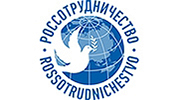There are more than 8,500 Russian multilingual kindergartens and schools all over the world in Europe, Asia, and Latin America.
 ADVERTISEMENT
ADVERTISEMENT
We start to learn about the world around us from the very first steps of our lives. And these steps are very important. Experts say the basic knowledge we obtain in preschool years can influence our future choices for a career, social activities and how we behave in adult life.
At what age are children susceptible to learning foreign languages or to handle new technologies? In every country, the approach for preschool education differs greatly.
In Russia, the multilingual kindergartens, where children can learn up to two foreign languages along with their native language, are becoming more and more popular. How does this work?
Janna Sugak, Director of kindergarten “Golden key” said, "At this age (primary school age) learning a foreign language is not about learning by parrot fashion. That approach does not really work. We have to create a role-play situation, to create a proper linguistic environment that will be adapted for children's understanding. That way the kids will act in a responsive way and feel at the same level as the adults."
This helps to develop their first passive vocabulary and then very quickly their active one. But the experts say, it's not only about communicating with the world. Learning different languages helps children stimulate their brain activity.
That approach is becoming more popular not only in Russia but also abroad. There are more than 8,500 Russian multilingual kindergartens and schools all over the world in Europe, Asia, and Latin America.
Alexander Adamsky, “Eureka" Institute of Educational Policy said, "We developed our methodology that can be used everywhere. Learning three or even four foreign languages is not a problem at all. Moreover, it boosts their willingness to study other subjects. Let’s say, the morning begins in English, then dance or theatre classes in French, and at the end of the day the kids play in a third language."
Technical Sciences and New Technologies
In Kaliningrad, they have what’s called ‘Kvantoriums’. These are centres of additional school education, where children can learn the basics of robotics, coding and much more. It’s free and accessible for everyone.
The approach towards children is completely different. The ‘Kvantorium’ program was launched in Russia two years ago. Today there are more than 80 educational centres all over the country with more than a hundred thousand pupils attending them on a regular basis.
Gosha is 12 years and said, "We had a task to make a robot guide for a local museum in our town. We made a prototype and now we have to debug it."
The ‘Kvantoriums’ are open for every child from the age of 11-12 years. There is no special preselection process. The only condition is that children have to work in a team.
One of the tutors said, "The teachers are there only to show the right direction. The children have to work on their projects by themselves from the very beginning until the end."
The ‘Kvantoriums’ are mobile and were specifically developed for rural areas so that children living in remote places can have access to new technologies as well.
Marina Rakova. Founder of “Kvantorium” technoparks network said, "There’s nothing equivalent to our 'Kvantorium' educational program anywhere in the world. We have a request for the transfer of technology from 20 countries of the world, therefore, together with http://rs.gov.ru/en we plan that in 2019 two such mobile Kvatoriums will also travel abroad.'











